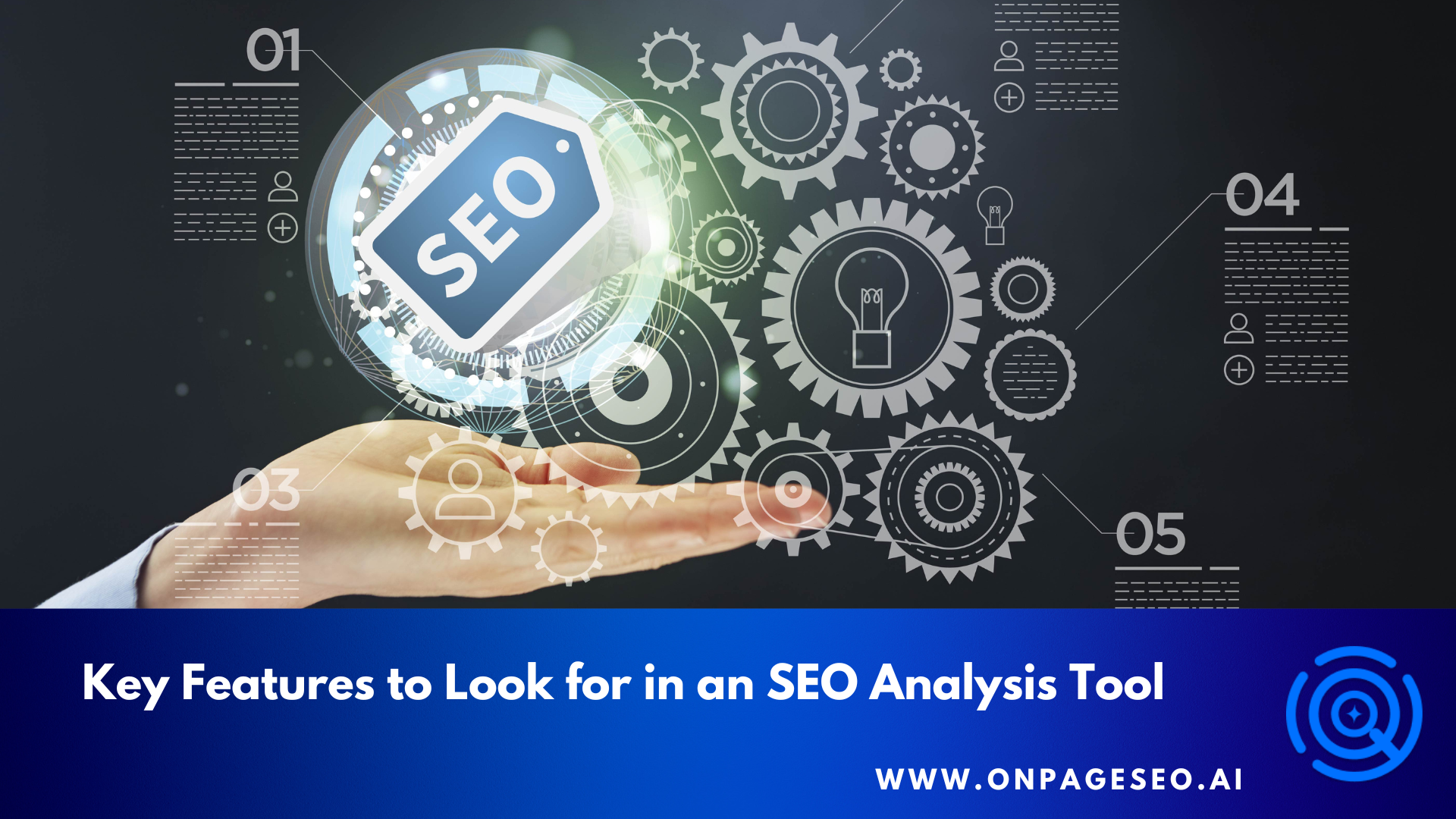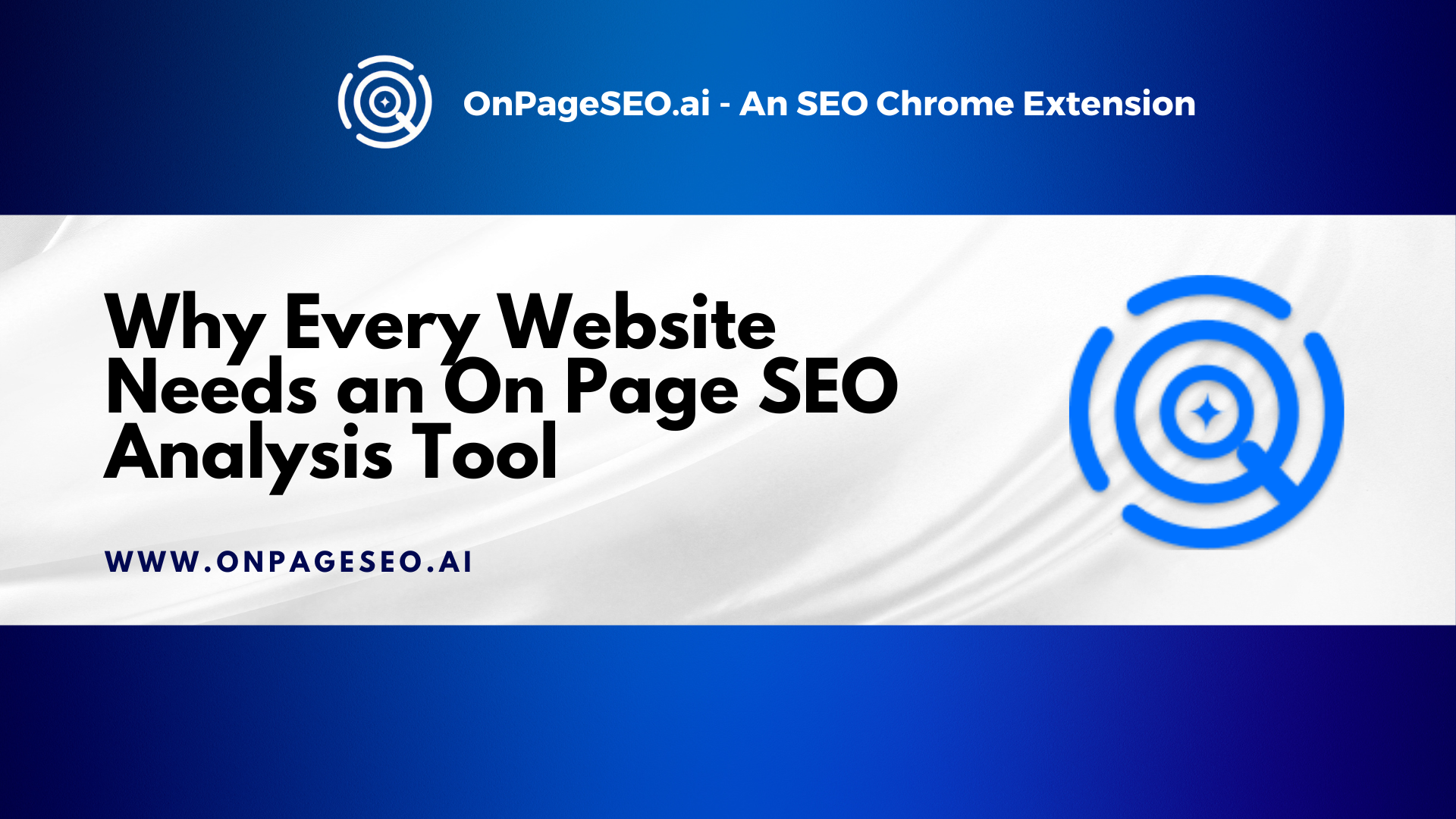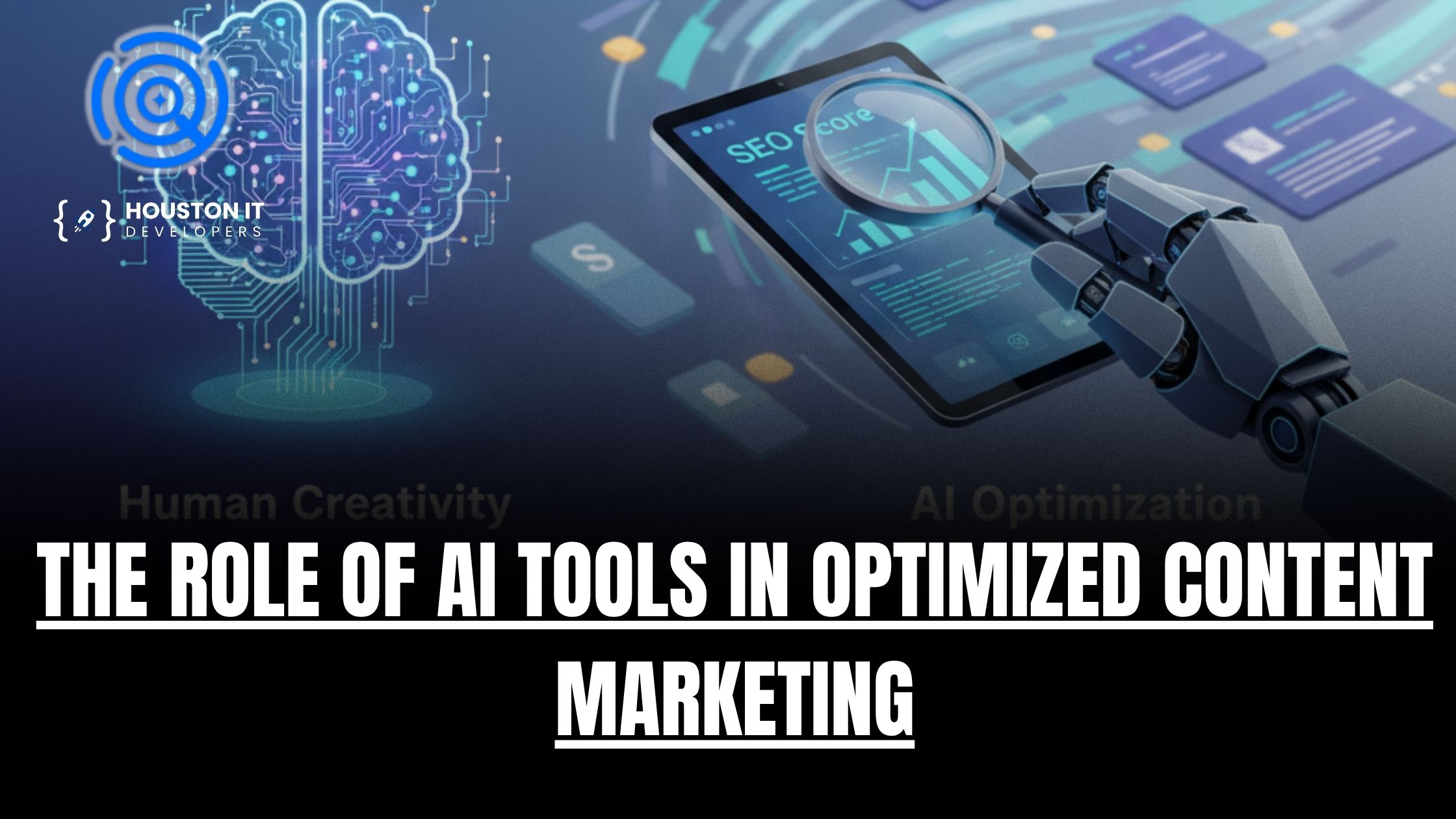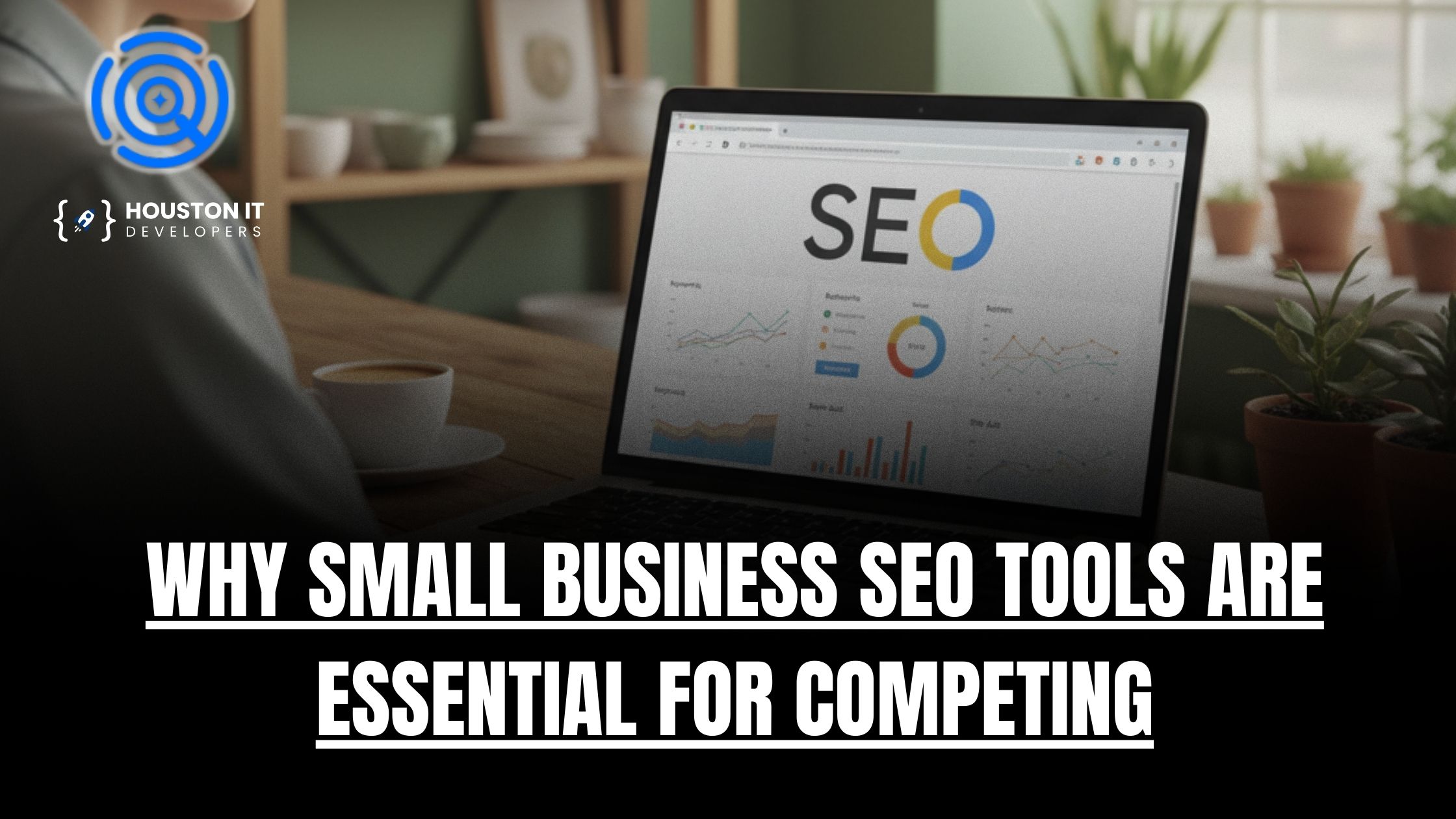Have you ever wondered why some websites dominate search results while others struggle to get noticed? The reality is that 90% of websites fail because they don’t keep up with evolving SEO trends like AI-driven optimization and mobile responsiveness. Without an on page SEO analysis tool, many businesses miss crucial ranking factors, leading to poor visibility. Despite investing in content and marketing, only 5.7% of pages secure a top 10 ranking for more than a year.
The problem? Many websites overlook on-page SEO, allowing issues like slow page speed, weak metadata, and poor keyword usage to sabotage rankings.
In this blog post, we’ll explore why an on page SEO analysis tool is essential, how it detects critical SEO errors, and why AI-powered solutions are changing the game. Whether you’re asking, “why does my website need an SEO tool?” or “how to analyze website on page SEO?”, this guide will provide the answers you need.
What Is an On Page SEO Analysis Tool?
An on page SEO analysis tool is a specialized software designed to evaluate the various elements of a webpage and determine how well it is optimized for search engines. Unlike general SEO platforms that cover multiple aspects of digital marketing, these tools focus exclusively on on-page factors, ensuring that every webpage meets search engine best practices.
Conducting a detailed on page SEO checker allow website owners to identify weaknesses, improve content relevance, and fix technical errors that might be limiting their visibility in search results.
Here are the key areas an on page SEO analysis tool evaluates:
- Meta Tags (Title Tags, Meta Descriptions): Ensures that title tags and meta descriptions are properly formatted, unique, and optimized with relevant keywords for better search visibility.
- Content Relevance and Keyword Usage: Analyzes how well keywords are placed within the content, ensuring they align with search intent without overstuffing.
- Header Tag Structure: Checks if H1, H2, and H3 tags are used correctly to create a well-structured, easy-to-read webpage for both users and search engines.
- Internal Linking and Site Navigation: Reviews internal links to ensure proper distribution of link equity, better user experience, and improved crawlability.
- Image Optimization (Alt Text, File Size): Identifies images lacking alt text, oversized files slowing down page speed, and other factors affecting SEO performance.
- Mobile-Friendliness and Page Speed: Evaluates whether the page is mobile-responsive and loads quickly, both of which are critical ranking factors in Google’s algorithm.
An on page SEO analysis tool helps businesses identify optimization opportunities, allowing them to make data-driven improvements that enhance rankings and user experience.
Common On-Page Issues That SEO Tools Can Detect
Even well-structured websites often contain hidden on-page SEO problems that impact their rankings and user experience. Without an on page SEO analysis tool, these issues can go unnoticed, preventing pages from reaching their full search potential. A website SEO analysis tool helps uncover and fix these errors, ensuring better optimization and improved search visibility.
Here are some of the most common on-page issues that an on page SEO checker can detect:
- Missing or Duplicate Title Tags and Meta Descriptions: Search engines rely on these elements to understand page content. A SEO audit tool detects duplicate or missing tags, which can lead to poor indexing and reduced visibility.
- Keyword Stuffing or Poor Keyword Placement: Overloading a page with keywords can lead to penalties, while improper placement may reduce relevance. An on page optimization tool ensures natural integration of keywords for better rankings.
- Thin Content or Lack of Comprehensive Information: Pages with insufficient content struggle to rank. A website SEO analysis tool identifies content gaps, helping businesses add depth and relevance to their pages.
- Broken Links and Improper Redirects: Broken internal or external links harm user experience and SEO. A SEO audit tool detects these issues, allowing site owners to fix them before they affect rankings.
- Slow Loading Times Due to Unoptimized Images and Scripts: Page speed is a major ranking factor. An on page SEO analysis tool highlights large images, excessive scripts, and other elements that slow down a site.
- Incorrect Header Tag Hierarchy (H1, H2, H3, etc.): Proper use of header tags improves readability and search engine comprehension. A on page SEO checker ensures that pages follow an organized structure.
Ignoring these on-page SEO issues can lead to poor rankings and a negative user experience. Fixing them with an on page SEO analysis tool improves engagement, enhances search visibility, and increases traffic. For website owners wondering, “why does my website need an SEO tool?”, the ability to analyze website on page SEO and resolve these common errors is the answer.
Manual Audits vs. Using an On Page SEO Analysis Tool
When optimizing a website, businesses must choose between a manual SEO audit or leveraging an on page SEO analysis tool. While a manual audit can be thorough, it demands significant time, expertise, and effort.
In contrast, an on page SEO checker automates the process, ensuring faster, more accurate, and scalable results. Below is a comparison of the two approaches:
| Factor | Manual SEO Audit | On Page SEO Analysis Tool |
| Time Efficiency | Requires hours or days to analyze even a single page. | Provides results instantly, saving time for other SEO tasks. |
| Accuracy | Human error may cause overlooked issues or misinterpretation of SEO factors. | Uses algorithms to deliver precise insights with no risk of missed errors. |
| Scalability | Analyzing large websites manually is overwhelming and inefficient. | Quickly scans multiple pages at once, making it ideal for large websites. |
| Actionable Insights | Requires advanced SEO knowledge to interpret findings and implement solutions. | Offers clear recommendations, making it easier to execute improvements. |
Why Manual Audits Fall Short
Conducting a manual audit means checking meta tags, content structure, page speed, internal linking, mobile responsiveness, and dozens of other ranking factors by hand. Even for experienced SEO professionals, this process is tedious and leaves room for mistakes. However, a website SEO analysis tool eliminates guesswork and provides structured, data-driven recommendations.
The Power of an SEO Audit Tool
An on page optimization tool doesn’t just identify issues—it prioritizes fixes based on their impact on rankings. For example, a SEO audit tool can instantly detect problems like duplicate meta descriptions, missing alt text, slow-loading images, and improper keyword placement—issues that might take hours to uncover manually.
For website owners asking, “why does my website need an SEO tool?”, the answer lies in efficiency, accuracy, and strategic insights. Instead of spending hours analyzing a single page, businesses can analyze website on page SEO effortlessly and focus on implementing high-impact optimizations.
Key Features to Look for in an SEO Analysis Tool

Not all SEO tools offer the same level of insight and functionality. Choosing the right on page SEO analysis tool is crucial for achieving meaningful optimization results. Whether you’re a business owner, digital marketer, or SEO specialist, the right tool should provide in-depth analysis, actionable recommendations, and seamless integration with essential platforms.
Here are the key features to look for:
1. Comprehensive Page Analysis
A reliable SEO audit tool should assess metadata, content quality, keyword placement, and internal linking structure. It should highlight missing or duplicate title tags, meta descriptions, and keyword inconsistencies that may weaken search visibility. Understanding how to analyze website on page SEO starts with an in-depth evaluation of these elements.
2. Technical SEO Checks
Technical issues can hinder even the most well-optimized content. A powerful on page optimization tool should detect site speed problems, broken links, unoptimized images, and mobile usability issues. Since search engines prioritize fast and mobile-friendly websites, these factors can make or break your rankings.
3. Competitor Benchmarking
A website SEO analysis tool that includes competitor benchmarking provides an edge by showing how your pages compare to industry leaders. By analyzing competitors’ content structure, keyword usage, and metadata, you can identify gaps and create a stronger on-page strategy.
4. AI-Powered Recommendations
Advanced tools leverage AI and machine learning to generate data-driven optimization suggestions. These features take the guesswork out of SEO by offering precise keyword recommendations, content enhancements, and structural improvements that align with search engine algorithms. This is one of the key benefits of an SEO analysis tool, as it automates complex decision-making.
5. Integration with Google Tools
Seamless compatibility with Google Search Console, Google Analytics, and other SEO platforms ensures deeper insights into search performance. By consolidating data from multiple sources, an on page SEO checker can provide a more accurate picture of your website’s strengths and weaknesses.
For e-commerce websites, optimizing on-page SEO is crucial for driving conversions and improving search visibility. Learn how to enhance product pages and category structures in on-page-seo-optimization-for-e-commerce-get-conversions.
OnPageSEO.ai: How AI-Powered SEO Tools Are Changing the Game

The evolution of search engine algorithms has made on-page optimization more complex than ever. Traditional on page SEO analysis tools help identify issues, but AI-powered solutions take it a step further by providing automated, data-driven recommendations that streamline optimization efforts.
One such tool leading this transformation is OnPageSEO.ai—a next-generation on page SEO checker designed to simplify and enhance the way websites optimize their pages.
How OnPageSEO.ai Enhances On-Page Optimization
Unlike conventional SEO audit tools, OnPageSEO.ai Chrome extension combines real-time analysis with AI-driven recommendations to help website owners and marketers optimize its content efficiently.
Here’s how it stands out:
1. Instant On-Page SEO Analysis
OnPageSEO.ai provides a one-click SEO audit, offering a health score assessment with AI-powered insights. This allows users to quickly identify technical and content-related issues affecting search visibility.
2. AI-Powered Title & Meta Description Optimization
Writing effective titles and meta descriptions is crucial for search rankings. This tool not only analyzes existing title tags and meta descriptions but also generates AI-driven suggestions based on page content, ensuring better click-through rates (CTR) and keyword optimization.
3. Header Structure Audit for SEO
A well-organized header structure (H1-H6) improves readability and search performance. OnPageSEO.ai provides an interactive header map that helps users instantly navigate their headings while offering color-coded SEO recommendations to enhance content hierarchy and keyword placement.
4. SEO Link Audit: Internal & External Link Analysis
Internal and external links play a vital role in on page optimization. OnPageSEO.ai delivers a detailed link audit, showing users how their links impact SEO. It analyzes anchor text usage, broken links, and link distribution, offering structured recommendations for better SEO link management.
5. Image SEO & Performance Optimization
Many websites overlook image SEO, which can significantly affect page speed and rankings. This tool scans for missing alt text, large file sizes, and unoptimized images, allowing users to convert images to WebP format instantly for better performance and accessibility.
6. Keyword Analysis & Density Tracking
Understanding keyword distribution is essential for avoiding over-optimization or keyword gaps. OnPageSEO.ai enables users to track keyword density, analyze word count, and filter by phrase length, ensuring that content remains relevant and SEO-friendly.
To get the most out of any on page SEO analysis tool, it helps to follow a structured approach. Explore the on-page-seo-checklist-10-must-do-optimizations-for-2025 to ensure you’re covering all the essentials.
FAQs
Why is on-page SEO so important?
On-page SEO ensures that your website’s content, structure, and HTML elements are fully optimized for search engines. This directly impacts how well your site ranks in search results. Strong on-page SEO also improves user experience, helping visitors navigate your content easily and engage more deeply with your site.
What are SEO tools and why do we need them?
SEO tools are software solutions that help analyze, audit, and improve website performance for search engines. An on page SEO analysis tool, for example, checks your metadata, headers, content quality, and technical elements. These tools provide actionable insights and save time compared to manual SEO checks.
Why do you need SEO for your website?
SEO is essential because it increases your website’s visibility on search engines, driving more organic traffic. Without proper SEO, even the best content may never reach its intended audience. It answers the critical question: Why does my website need an SEO tool?—to compete effectively online and ensure your pages are discoverable, relevant, and ranking.
Final Thoughts on Why Every Website Needs an On Page SEO Analysis Tool
On-page SEO is the foundation of every successful website. Without it, even the most engaging content can be buried in search results. From detecting broken links and weak metadata to improving keyword use and content structure, an on page SEO analysis tool uncovers what’s holding your pages back—and shows you how to fix it.
Ready to improve your rankings, visibility, and user experience? Start by analyzing your website with a tool that does the heavy lifting for you.
Install the free OnPageSEO.ai Chrome extension today to instantly audit your content, get AI-powered SEO suggestions, and optimize every page with confidence. Whether you’re a marketer, blogger, or business owner, it’s time to take control of your on-page SEO.



